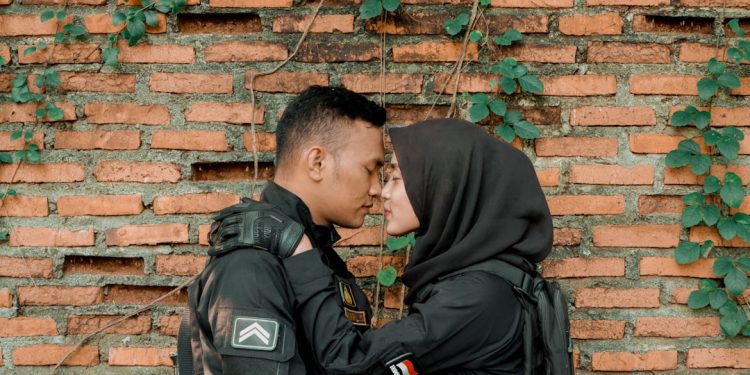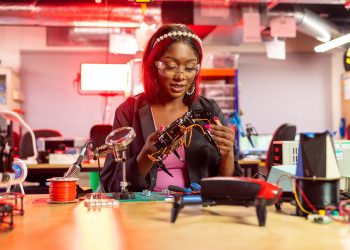No products in the cart.
Navigating Love in the Digital Age: AI’s Role in Dating
Explore how AI is transforming the dating landscape and creating new careers in relationship technology, blending love and innovation.
San Francisco, USA — In the bustling tech capital of the world, a quiet revolution is taking place in the realm of romance. Dating apps, once merely a digital directory of singles, are now evolving into sophisticated platforms powered by artificial intelligence. These algorithms are reshaping how we connect, providing users with tailored experiences that aim to match not just interests, but compatibility on a deeper level.
With over 300 million people using dating apps worldwide, the stakes are high. Companies like Tinder, Bumble, and Hinge are leveraging AI to enhance user experience, making it more intuitive and, in theory, more successful. But as these technologies advance, they also pave the way for new careers and industries focused on relationship tech.

The rise of AI in dating isn’t just about finding ‘the one.’ It’s about understanding the complexities of human relationships through data. Dating algorithms analyze user preferences, behaviors, and even linguistic patterns, presenting matches that align with what users may not even realize they want. For instance, Hinge’s algorithm learns from user feedback, adjusting its suggestions based on successful interactions. This iterative process mirrors the learning curve of a budding romance, where each interaction informs the next.
 Ethics
EthicsNavigating the Ethics of Space Exploration
As humanity reaches for the stars, the ethical implications of space exploration raise critical questions about ownership and stewardship.
Yet, this rapid advancement is not without its critics. Concerns about privacy, data security, and the potential for superficiality in relationships loom large. Critics argue that while algorithms can suggest matches, they may inadvertently reinforce biases and stereotypes. A study by the Pew Research Center found that 30% of online dating users have experienced harassment or unwanted messages, highlighting the darker side of digital romance.
For instance, Hinge’s algorithm learns from user feedback, adjusting its suggestions based on successful interactions.
Despite these challenges, the potential for innovation in this space is immense. New startups are emerging, focusing on niche dating experiences, such as apps catering to specific interests or communities, thus broadening the dating landscape. For example, apps like JSwipe and HER are designed to serve unique demographics, fostering inclusivity in a traditionally homogeneous industry.
As AI continues to permeate the dating scene, it also creates new job opportunities. The demand for data analysts, relationship coaches, and even AI ethicists is on the rise. Companies are seeking professionals who can navigate the ethical complexities of AI in relationships, ensuring that technology enhances rather than detracts from the human experience.
Moreover, the intersection of AI and dating is creating a unique blend of technology and emotional intelligence. Relationship tech experts are now essential, helping to design algorithms that prioritize user well-being and authentic connections. As we move forward, the question remains: can technology truly understand the nuances of human emotion?
 Business
BusinessTech Firms Face Rising Ethical Scrutiny Amid AI Workforce Integration
As AI technologies reshape corporate workforces worldwide, leading tech companies grapple with ethical challenges around automation, employee rights, and transparency.…
Read More →Jobs in this field are not just for tech-savvy individuals; they require a deep understanding of human psychology and social dynamics. This creates an exciting opportunity for younger generations who are increasingly aware of the importance of emotional intelligence in the workplace. As these careers evolve, they will likely shape the future of not just dating, but how we connect in all aspects of life.
Looking ahead, as dating apps continue to refine their algorithms, the blending of technology and romance will likely deepen. Imagine a future where your AI matchmaker knows your preferences so well that it can suggest not just a date, but the perfect setting, the ideal time, and even the right conversation starters. The potential for personalization is vast, and with it comes the responsibility to ensure that these tools are used ethically and thoughtfully.
This creates an exciting opportunity for younger generations who are increasingly aware of the importance of emotional intelligence in the workplace.
As we navigate this brave new world of love and technology, it’s crucial for users to remain informed and engaged. Understanding how these platforms work can empower individuals to take charge of their dating lives while embracing the innovations that promise to enhance the way we connect. In the end, the fusion of AI and dating might just lead us to more meaningful connections, evolving the concept of love in the digital age.











